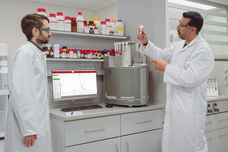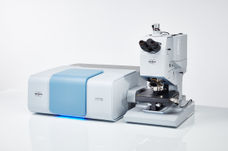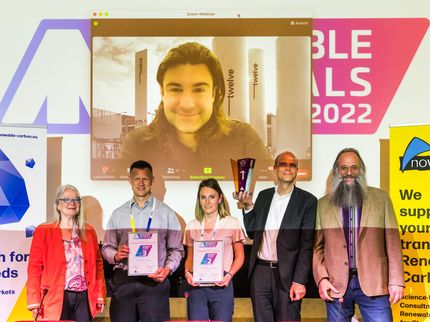Cargill Dow LLC and Mitsui Chemicals, Inc. Announce Collaboration on PLA Business Development
Cargill Dow LLC and Mitsui chemicals, Inc. have announced a collaboration for business development of PLA; a new polymer material made from renewable resources. Cargill Dow, the global leader in commercialization of PLA, and Mitsui Chemicals, a leading Japanese chemical company have signed a collaboration agreement to accelerate market development for PLA in Japan and the rest of the world. Under the terms of the agreement, there will be an exchange of intellectual property and technical information relating to PLA application development. Through this arrangement, customers for both parties will be in a position to proceed with business development without concerns of potential intellectual property restrictions from Cargill Dow or Mitsui Chemicals portfolios. Mitsui Chemicals will receive exclusive business development rights to sell PLA resin in Japan.
“Japan is the most developed region in the world for PLA,” said Randy Howard, president of Cargill Dow LLC. “The agreement with Mitsui Chemicals is an ideal agreement for both companies. It marks another significant step in the development of the new industrial revolution where annually renewable resources replace petroleum-based materials.”
PLA is a naturally based resin made from plant sugars derived from feedstock such as corn in United States. The development and manufacturing of PLA relies on basic fermentation and distillation as its core chemical process, followed by simple polymerization to make the polymers. A world-scale production facility for Cargill Dow’s resin, NatureWorks™ PLA*1, is under construction in Blair, Neb. Construction will be completed in late 2001 and when at capacity the facility will be able to produce 140,000 metric tons of PLA annually.
“Mitsui Chemicals is very delighted to sign a collaboration agreement with Cargill Dow, a global leading company of PLA.” said Dr. Hiroyuki Nakanishi, president of Mitsui Chemicals, Inc. “The synergy of Cargill Dow’s and Mitsui Chemicals’ expertise will accelerate the PLA market expansion.” Mitsui Chemicals has developed PLA technology and market using LACEA® PLA*2 resin produced in the pilot plant. It was confirmed that material, processing and application technologies for LACEA® PLA can be applied to PLA resin produced by Cargill Dow. Mitsui Chemicals will use PLA resin from Cargill Dow for the marketing under the LACEA® name.
Currently, Japanese market is the leader in the development and commercialization of PLA. Cargill Dow has worked with and will continue to supply NatureWorksTM PLA to pioneering Japanese companies like Kanebo Gohsen, Kuraray, Mitsubishi Plastics and Unitika. The applications of PLA in the Japanese market range from packaging & container, agriculture & civil engineering, composting to fibers including sportswear and bedding.
In order to expand the market opportunity, Cargill Dow and Mitsui Chemicals will cooperate to continue studying Life Cycle Assessment of PLA, and to obtain positive list status in Japan Hygienic Olefin and Styrene Plastics Association for food contact application. In addition, the companies will help promote the GreenPla*3 certification system and logo developed by Biodegradable Plastics Society in Japan and harmonize globally the certification system of biodegradable plastics.
Most read news
Topics
Organizations
Other news from the department business & finance
These products might interest you

Spinsolve Benchtop NMR by Magritek
Spinsolve Benchtop NMR
Spinsolve is a revolutionary multinuclear NMR spectrometer that provides the best performance

Eclipse by Wyatt Technology
FFF-MALS system for separation and characterization of macromolecules and nanoparticles
The latest and most innovative FFF system designed for highest usability, robustness and data quality

HYPERION II by Bruker
FT-IR and IR laser imaging (QCL) microscope for research and development
Analyze macroscopic samples with microscopic resolution (5 µm) in seconds

Get the chemical industry in your inbox
By submitting this form you agree that LUMITOS AG will send you the newsletter(s) selected above by email. Your data will not be passed on to third parties. Your data will be stored and processed in accordance with our data protection regulations. LUMITOS may contact you by email for the purpose of advertising or market and opinion surveys. You can revoke your consent at any time without giving reasons to LUMITOS AG, Ernst-Augustin-Str. 2, 12489 Berlin, Germany or by e-mail at revoke@lumitos.com with effect for the future. In addition, each email contains a link to unsubscribe from the corresponding newsletter.



























































